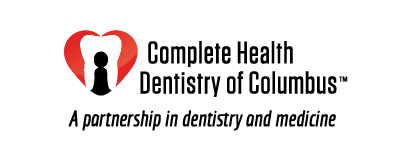Mask Breath: Is it telling you something about your health?
- Barbara McClatchie, DDS
- May 7, 2021
- 3 min read
Updated: May 10, 2021
After more than a year of masking our faces, many of us have been confronted with the reality of our breath. “Mask breath” is the latest name for halitosis, which has been around as long as we’ve had mouths, but now we have a new offender in the mix. Even though the main issue of wearing masks is only the mirror it provides for us to smell our own breath, masks can also encourage mouth breathing and discourage adequate hydration.
The upside of being hyper aware of your own breath, however, might be the encouragement needed to be more vigilant about your dental hygiene. If your baseline preventative care doesn’t hold up to the mask test, it’s time to prioritize your next trip to the oral care specialist!
What is halitosis?
The short answer is: chronic bad breath. Unfortunately, halitosis may pose a bigger problem than mints, mouthwash, or chewing gum can solve. Halitosis should receive personalized dental care from a professional. There are three main factors in eliminating halitosis.
Brush and floss regularly. And don’t forget to brush or scrape the tongue!
Stay hydrated for saliva production
Visit your dentist for regular cleanings and checkups
Oral Enemy #1: Bacteria
If you’re ever needing an incentive to improve your dental wellness plan, think about this: 700 species of bacteria enjoy a home in our mouths. There are some common pathogenic bacteria that cannot be treated even with the best oral hygiene routines and some can't even be treated with traditional methods at the dentist office. That is why it is so critical to get a saliva test. Having a complete picture of what’s happening in your mouth will help you feel more confident not only about your breath, but also about your oral systemic health.
Hydration and Mouth Breathing
Staying hydrated is beneficial for a healthy mouth, but keeping a mask on can discourage drinking fluids. Most of us are trying to comply with regulations, and as such, not touching our faces or masks while in public. Denying ourselves access to our mouths can make consistent sips of water throughout the day challenging.
The less familiar sensation of breathing in our breath can make it seem that we are not getting enough oxygen. This feeling in turn can cause us to start breathing through the mouth instead of the nose. This can create a dry mouth, which is a culprit of halitosis. Also, mouth breathing causes your body to lose nitric oxide, which can negatively affect your cardiovascular health. Even without masks, 61% of people are mouth breathers.
Saliva to the rescue
Saliva is in action in your mouth when you are not actively brushing, flossing, or rinsing. Saliva can be quite underrated. Throughout the day, it washes bacteria and food particles off of our precious tooth enamel. Saliva also neutralizes acids that are created by bacteria. Did you know that many over the counter mouthwashes can actually dry out your mouth and cause imbalance in your acidity levels? Mouthwashes can cause an imbalance in the oral cavity, as it can kill the good bacteria as well as the harmful bacteria. A whole body dentist can provide recommendations for the most effective products.
When we look at the value of saliva, it’s easy to recognize the threat of dry mouth and the importance of hydration. When the mouth does not contain a healthy amount of saliva, the teeth and gums are exposed to the damaging properties of bacteria. Dry mouth can be caused by medications, mouth-breathing, and an imbalanced diet such as one that’s overloaded with sugar and/or salt, smoking, tobacco, alcohol, and cancer therapy.
Could it be something more?
If addressing the checklist above doesn’t provide minty-fresh results, you may be looking at a more substantial issue such as gum disease, also known as periodontal disease. Did you know? Over 80% of American adults over 30 have some form of gum disease. The silver lining to identifying halitosis is that it may tip you off to something that is more threatening to your health, which gives you time to find a diagnosis and start treatment. Chronic bad breath can be a symptom of significant gum disease, oral infections, and illnesses that could easily be overlooked as being associated with oral hygiene, such as diabetes and kidney disease. Periodontal disease testing and treatment will give you and your dentist the information you need to implement proactive dental care.
If you find that your bad breath persists, give Complete Health Dentistry of Columbus a call. Together, we can discover what the root cause might be. The results from a proper cleaning and exam can help you discover any oral health problems and guide you to the next steps, such as what types of dental products to use, treatment plans to implement, or referral to a medical provider to follow up.

Comentários